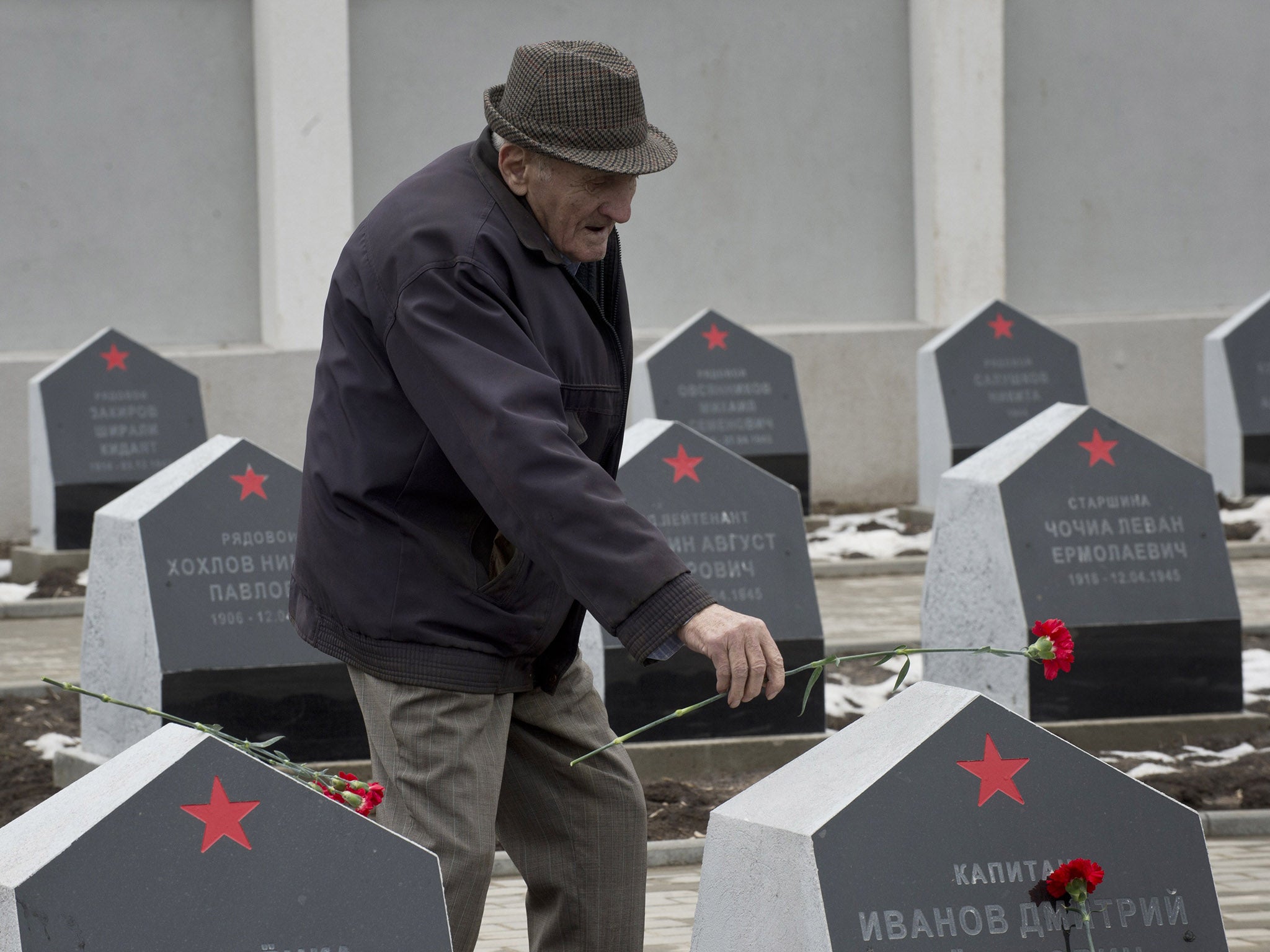Russia asks Ukraine and Poland to stop people vandalising Soviet war monuments
Alexey Utkin says the countries need to do more to 'indicate the inadmissibility of the recent spate of vandalism'

The Russian foreign ministry has called on the Ukrainian and Polish governments to stop the vandalism of Soviet era war memorials and cemeteries.
Speaking to the Federal Council, the upper house of the Russian parliament, deputy director of the Russian Foreign Ministry’s Consulate Department Alexei Utkin said they were paying “special attention” to protecting Russian and Soviet military gravesites abroad.
He said they had made progress coming to agreements with several different countries such as China and Bulgaria on protecting the sites but were calling on Kiev to “clearly indicate the inadmissibility of the recent spate of vandalism”, state news agency Tass reported.
At the time the Soviet war graves were constructed after the Second World War, many were then within the territory of the USSR, such as those in Ukraine, or part of its sphere of influence, like Poland as well as in the countries where the soldiers died such as Germany.
After the collapse of the USSR, 15 states across Europe and Asia declared independence and many others behind the Iron Curtain deposed their communist governments.
In recent years Moscow has tried to regain influence over its neighbours and many in the country do not recognise the view of the international community that its annexation of Crimea in 2014 was a foreign invasion as they regard Ukraine as part of a greater Russia.
It has repeatedly denied any involvement with the rebels in the Donetsk region of Ukraine who declared independence after protests in Kiev saw the overthrow of Ukraine’s Kremlin-backed former President Viktor Yanukovych but is believed to be arming them and providing some military support.
But this assertiveness has angered the governments of many eastern European states such as Poland who have turned to Nato for support as Russia caries out war games on their borders.
US army tanks arrived in Poland for the first time by sea last month as part of what the US military calls its continuing "heel-to-toe" rota of its forces across eastern Europe to provide support to its Nato allies.
The Ukraine frontline – in pictures
Show all 6Although this movement was not a sign of increased militarisation of the border or signs that it was about to launch an attack, it coincided with the beginning of Russia's "Zapad" war games over the border in Belarus.
On Monday, Warsaw announced it would commit to increasing its defence spending to at least 2.5 per cent of GDP, far higher than the two per cent required of Nato members, as a sign that it was becoming more concerned about its military strength.
In his address to the Federal Council's Committee on Foreign Relations, Mr Utkin singled out the Polish government as a cause for concern over the future of the war graves, noting the Polish parliament has recently passed a law banning communist propaganda in the country.
"The Foreign Ministry has worked out a set of systemic measures approved by the Russian president to counteract Poland’s hostile policy in order to prevent further damage to our monuments and cemeteries on this country’s soil", he said.
Subscribe to Independent Premium to bookmark this article
Want to bookmark your favourite articles and stories to read or reference later? Start your Independent Premium subscription today.

Join our commenting forum
Join thought-provoking conversations, follow other Independent readers and see their replies